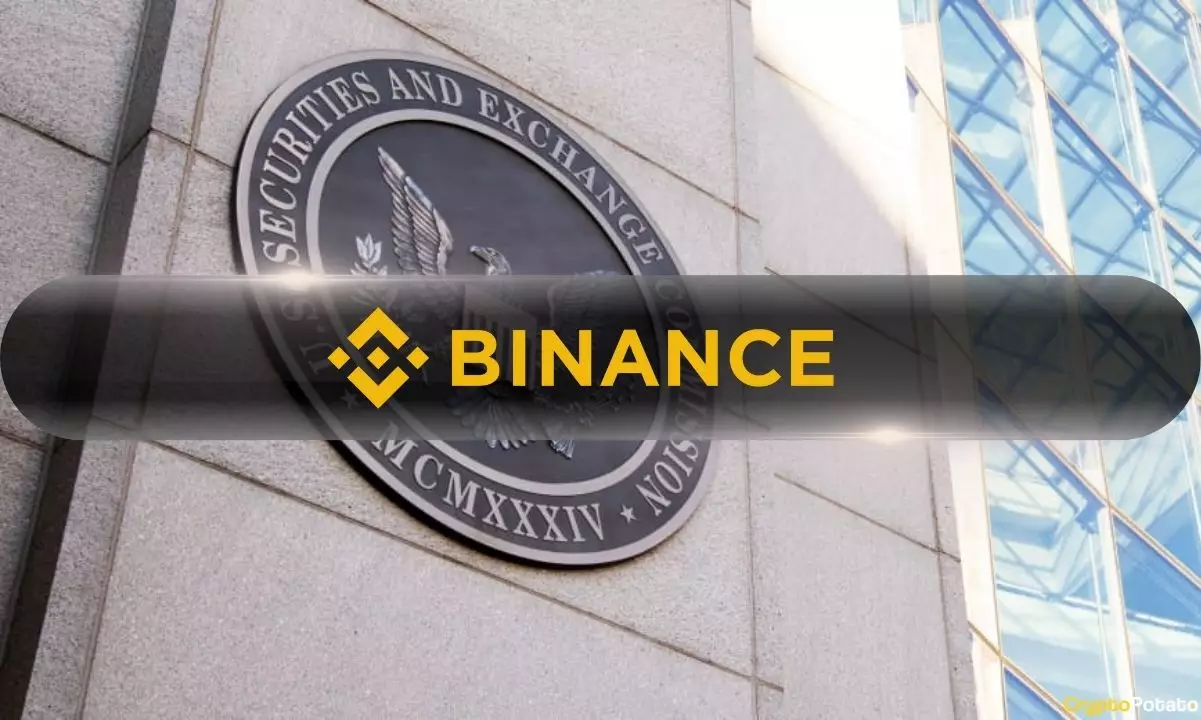The ongoing legal battle between the U.S. Securities and Exchange Commission (SEC) and cryptocurrency exchange Binance, alongside its U.S. affiliate Binance.US and former CEO Changpeng Zhao, has stirred significant conversation in the world of digital finance. The SEC’s lawsuit, initially filed earlier this year, alleges that the platforms operated an unregistered securities exchange in violation of federal law. The repercussions of this case extend far beyond Binance, illuminating the broader challenges of regulating cryptocurrencies in an industry that has long operated in the shadows.
At the heart of the SEC’s allegations against Binance is the Howey Test, a legal standard established by the U.S. Supreme Court to identify what constitutes a security. To satisfy the Howey Test, three criteria must be met: there must be an investment of money, a common enterprise, and an expectation of profit that stems from the efforts of others. The SEC contends that Binance’s native token, BNB, along with ten other cryptocurrencies, fulfills all these requirements. They argue that Binance’s operational model led users to believe that the success of their investments was intertwined with the performance of the Binance ecosystem, thus creating a substantial expectation of profit.
This argument is not merely theoretical. The SEC asserts that even secondary market transactions related to these tokens fall under the regulatory framework traditionally associated with securities—an assertion that significantly expands the authority of the SEC over cryptocurrency trading. By labeling BNB and other cryptocurrencies as securities, the regulator is attempting to exert control over a marketplace that has thus far largely evaded regulatory scrutiny.
Despite the SEC’s firm position, there is considerable dissent within the crypto industry regarding its methods and rationale. High-profile figures, including legal experts from major crypto platforms like Coinbase and Ripple, have criticized the SEC for what they see as an inconsistent and possibly overreaching regulatory approach. For example, Coinbase’s legal chief, Paul Grewal, pointed out the contradictions in the SEC’s enforcement actions, specifically questioning why leading cryptocurrencies like Bitcoin (BTC) and Ethereum (ETH) remain unclassified as securities. This inconsistency raises valid concerns about selective enforcement and the potential impact on innovation within the cryptocurrency space.
Moreover, as the SEC adapts its strategies, George Gensler, the current chair, faces increasing scrutiny. As it stands, chairmanship will transition in early 2025, with Donald Trump’s projected administration suggesting a shift towards a pro-crypto leadership under Paul Atkins. Such potential changes in leadership could significantly influence the assessment and treatment of cryptocurrencies in the long term, making the outcome of the Binance lawsuit all the more crucial not just for the involved parties but for the regulatory landscape as a whole.
The Legal Back-and-Forth and the Role of the Courts
The courtroom has become a dynamic arena where the SEC is defending its position while concurrently amending its filings in response to criticisms voiced during proceedings. Following remarks from Judge Amy Berman Jackson questioning some of the SEC’s arguments, the commission revised its complaint, further solidifying its stance against Binance. However, the exchange, led by Zhao, has not taken these allegations lightly and has filed a motion to dismiss the amended complaint, claiming an absence of substantiating evidence from the SEC.
The SEC’s legal maneuvers reflect a broader attempt to reclaim authority over the rapidly evolving crypto market; however, the ongoing exchanges in court signify a critical juncture for industry regulation. Key legal voices, such as crypto attorney John Deaton, have called for a reconsideration of the foundational Howey decision, challenging the SEC to reevaluate its interpretation of what constitutes a security. This dialogue is crucial as it underscores the ongoing tension between regulatory oversight and innovation in the cryptocurrency space.
The dispute between the SEC and Binance not only signifies the regulator’s strict stance towards digital asset exchanges but also highlights the ongoing struggle to define the regulatory boundaries of cryptocurrencies. As the SEC seeks to establish a clear regulatory framework through this lawsuit, the potential fallout will likely resonate across the entire cryptocurrency ecosystem. The question remains whether current and future regulatory practices will foster an environment of innovation or stifle it, as the lines between technology and finance continue to blur. In an era where finance is becoming increasingly digitized, the resolution of this case may very well dictate the future trajectory of the cryptocurrency market in the United States.

